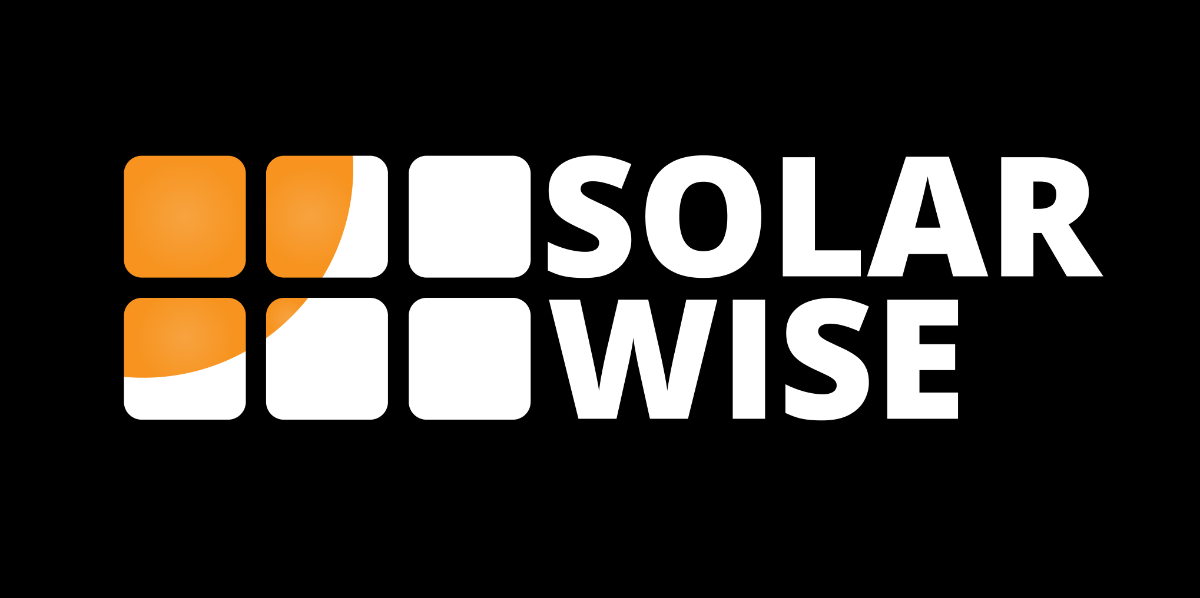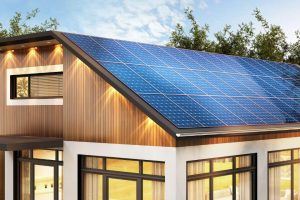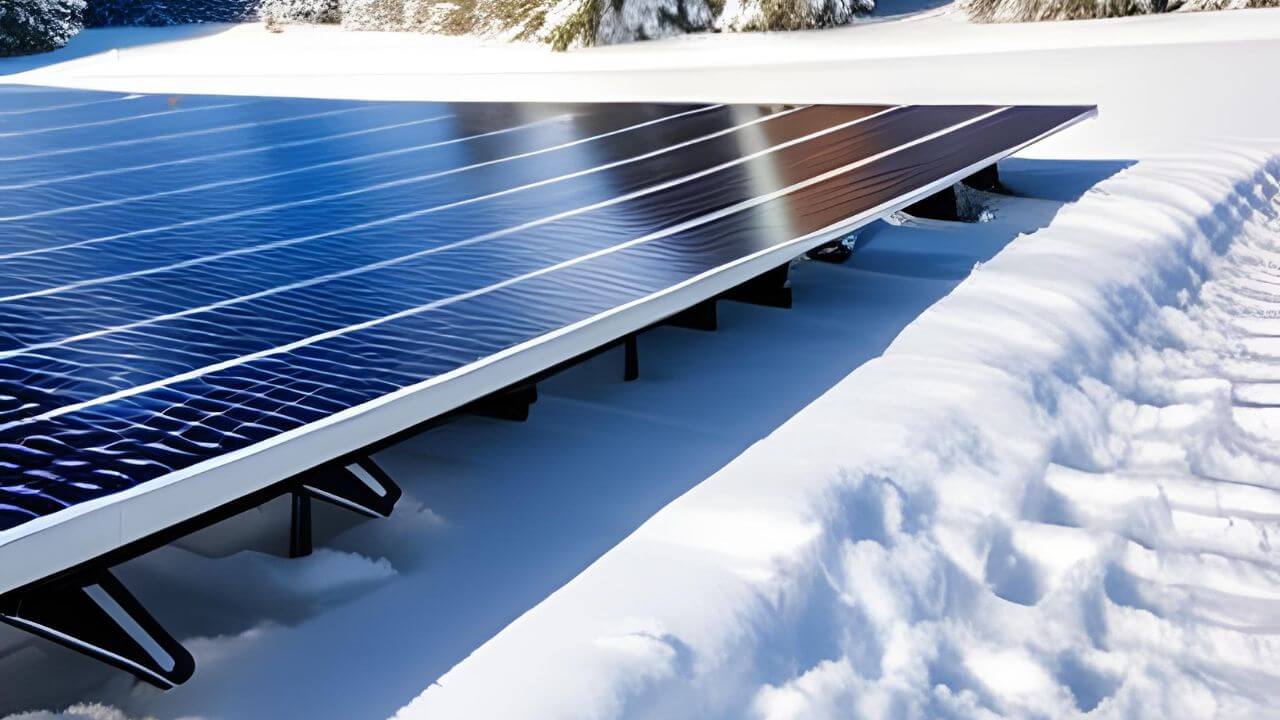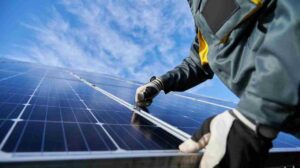Here, we venture into the realm of solar energy, imparting the knowledge we’ve accumulated on our journey! If the transition to solar panels is on your radar, you must have many queries brewing in your mind. In this piece, we will shed light on some of the nuances of owning solar panels that we wish had been revealed before we embarked on this journey. From unexpected expenses and upkeep advice to a deeper comprehension of your energy consumption, we aim to give you a comprehensive viewpoint to aid in your decision-making process. Brace yourself to absorb some illuminating insights on solar energy.
Solar Panel Efficiency and Quality
The efficiency of a solar panel indicates its prowess in converting sunlight into usable electrical energy. Panels with higher efficiency ratings can generate more power from the same level of sunlight exposure. The quality of solar panels is another determinant that prominently influences your system’s longevity and consistent performance. Premium-quality panels are typically characterized by enhanced durability, enabling them to endure severe weather conditions and retain functionality longer than their lower-quality counterparts. Furthermore, these superior panels often accompany extended warranties and supportive service from the manufacturers, assuring you that your investment is secure.
Proper Sizing of Solar Systems
To fully reap the rewards of solar power, the system must be precisely tailored to cater to your energy demands. System sizing involves identifying the scale and elements necessary for your solar setup to furnish adequate electricity for your residence or commercial space. Installing a too-large system will entail unnecessary expenses, while a smaller system will fall short of fulfilling your energy needs. To guarantee the optimization of system sizing, it is recommended to solicit expert evaluation.
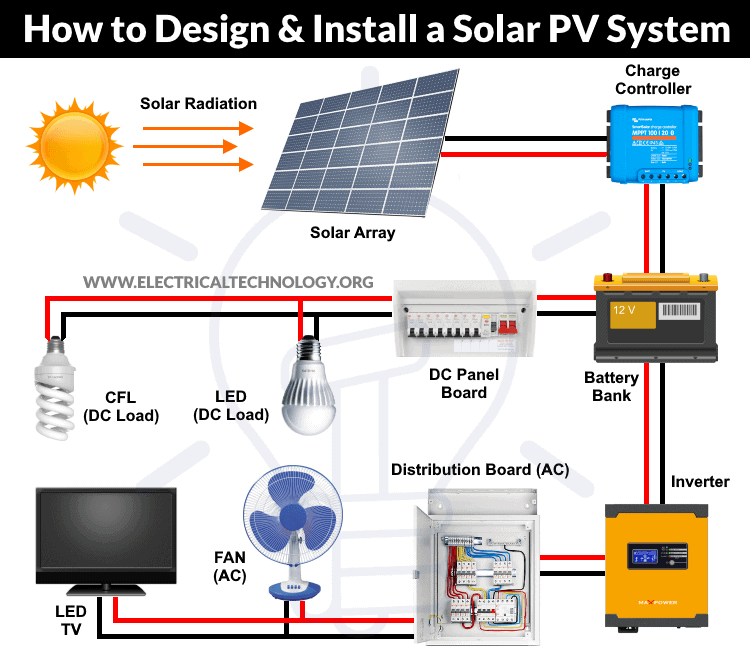
Credit: electricaltechnology.org
Assessing Roof Condition and Compatibility
The integrity and structure of your roof are pivotal factors in determining the viability of a solar panel installation. A deteriorated or frail roof may pose risks concerning the load-bearing capacity needed to support the solar panels. Hence, it is mandatory to ascertain that your roof is in optimum condition before embarking on the installation process. Tops that have seen many years might struggle to support the heft of modern, robust solar panels, potentially leading to structural complications in the long run. It is fundamentally vital to analyze if your existing roof structure and material can sustain the specifications of the proposed solar setup.
Making the Right Choice with Solar Inverter Selection
Selecting a superior-quality solar inverter is a critical step to secure the consistent performance of your solar energy system. The inverter functions as a linchpin in the solar panel setup, responsible for transforming the DC current harvested by the panels into AC voltage, compatible with household or commercial utilization. Your inverter’s efficiency and caliber directly influence the amount of energy harnessed and utilized from your solar panels. A proficient inverter amplifies the power yield from your solar panels and diminishes losses attributed to conversion inefficiencies, which typically manifest during the transformation from DC to AC, consequently reducing the system’s output. Investing in a top-notch solar inverter facilitates seamless operation across all components, encompassing monitoring setups and safety apparatus, thereby enhancing overall performance and prolonging the entire system’s lifecycle.
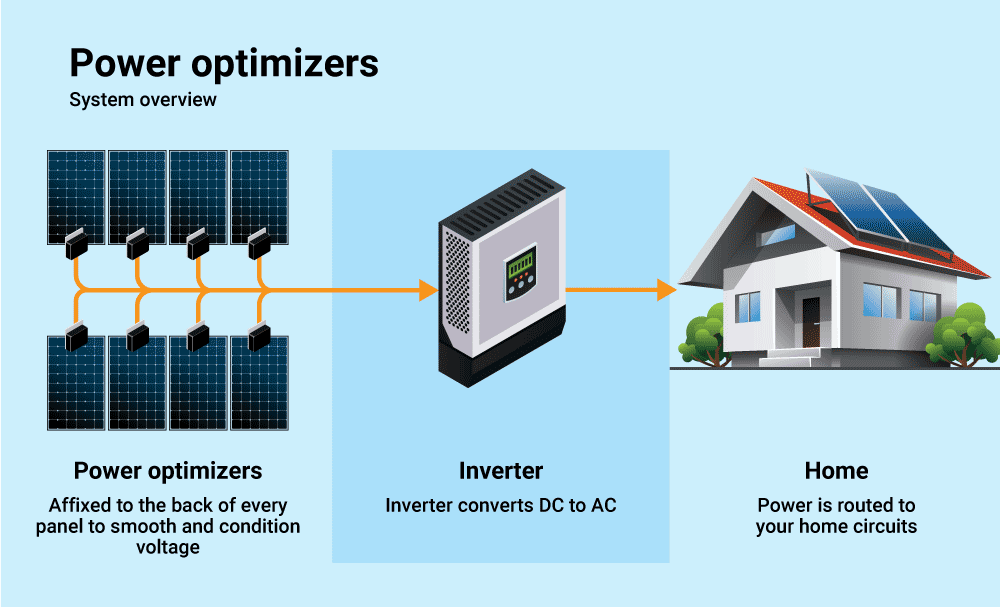
Credit: solarreviews.com
Local Incentives and Rebates
The initial installation cost of a solar system can be a major deterrent for homeowners and businesses alike. Fortunately, many regions worldwide offer incentives and rebates for solar installations to reduce costs. These incentives are often provided by local governments, utility companies, or private organizations looking to promote green energy initiatives. The rebate or incentive offered varies from region to region but can be substantial enough to reduce the overall installation cost significantly. Researching available programs in your area can help determine which options suit your needs and budget.
Warranty and Service Coverage
As homeowners embark on installing a solar system, a pivotal consideration is the warranty and service provisions accompanying the products and services from both the installer and the manufacturer. Given that solar systems have the potential to outlast a quarter of a century, it is vital to comprehend the extent and nature of support available throughout the lifetime of your solar installation. Your installer’s warranty should encompass any craftsmanship or installation flaws, typically guaranteeing coverage for a tenure of around a decade. Such warranty provisions act as a safety net, assuring homeowners they are not liable for setbacks emerging from faulty installation. However, it’s imperative to note that warranty offerings are not a standard practice across all installers, thereby necessitating a thorough inquiry into this aspect prior to engaging an installation service for your solar system.
Monitoring and Maintenance
To safeguard the seamless operation of your solar system, adherence to a routine of monitoring and maintenance is essential. Consistent oversight of your solar system’s functionality allows for the early detection of potential issues, thereby facilitating proactive interventions before the escalation into severe complications. The sustained upkeep of essential components, such as solar panels and inverters, is paramount in enhancing the longevity of your solar setup. This entails regular cleansing procedures to eliminate accumulated dirt and debris on the panels, coupled with vigilant inspections for any indications of deterioration in the equipment. Such preventative measures mitigate the onset of more substantial issues in the future, fostering a state of optimal efficiency in your solar system’s performance throughout its service life.
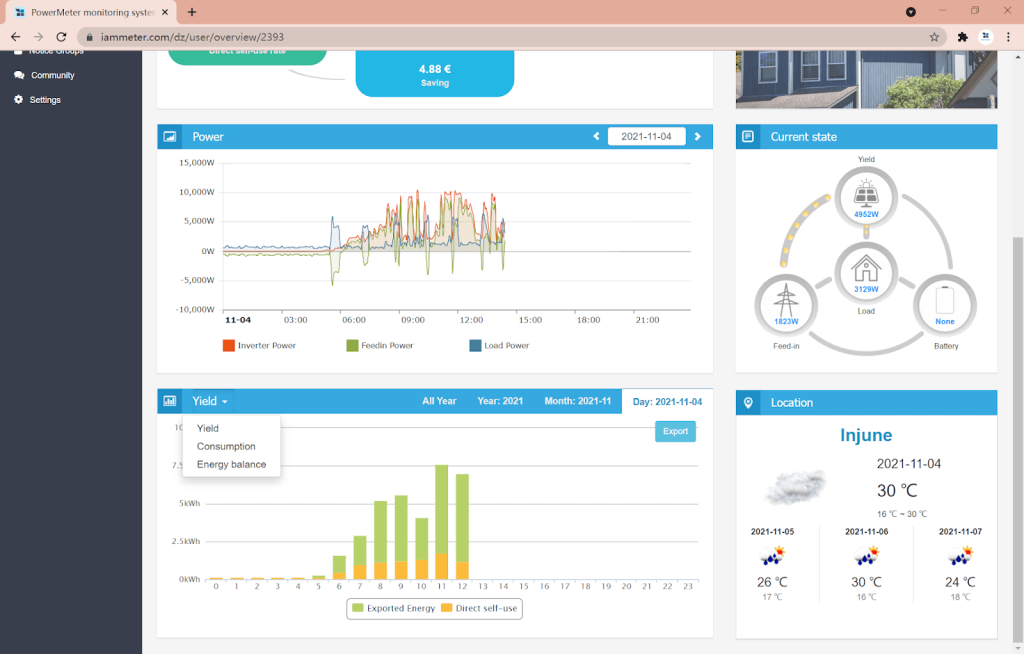
Credit: iammeter.com
Choosing the Right Installer
A knowledgeable and experienced solar installer can make all the difference in ensuring a successful solar project. Not only should you look for an installer with proper certifications, but you should also pay attention to their reviews and experience. It’s important to choose an installer who has the proper certifications. This guarantees they have undergone training and possess the expertise to complete your project safely and efficiently. Look for installers certified by organizations such as the NABCEP or the Solar Energy Industries Association (SEIA). In addition to certifications, reviewing previous clients’ reviews can give insight into an installer’s workmanship and professionalism. Good reviews indicate that the installer has a track record of delivering quality workmanship within budget and on time.
To sum up
In conclusion, solar panels can be a rewarding investment, offering clean energy and long-term savings. However, I wish I had known the importance of researching thoroughly, comparing quotes, and understanding the local incentives available. I also learned that choosing the right installer and solar panel type is essential for optimal performance. Lastly, being aware of the maintenance requirements and potential challenges with property value adjustments would have been helpful. By sharing my experiences, I hope to empower future solar panel adopters to make informed decisions and fully harness the benefits of this sustainable energy solution.
